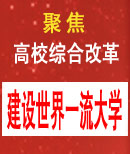Mid-Autumn Festival (also known as the Moon Festival), the third major festival of the Chinese calendar, is celebrated on the 15th day of the 8th month, as the moon is supposed to be at its maximum brightness for the entire year.
The moon definitely spins countless legends throughout the ages. Of course, the most famous legend is the one surrounding the “lady living in the moon” that dates back to ancient times, to a day when ten suns appeared at once in the sky. The Emperor ordered a famous archer to shoot down the nine extra suns. Once the task was accomplished, Goddess of Western Heaven rewarded the archer with a pill that would make him immortal. However, his wife found the pill, took it, and was banished to the moon as a result. Legend says that her beauty is greatest on the day of the festival.
Another legend depicts a possible role that the festival played in Chinese history. Overrun by the Mongols in the thirteenth century, the Chinese threw off their oppressors in 1368 AD. It is said that mooncakes - which the Mongols did not eat - were the perfect vehicle for hiding and passing along plans for the rebellion. Families were instructed not to eat the mooncakes until the day of the festival, which is when the rebellion took place.
The most lunatic mortal in Chinese history could have been the great poet Li Bai (701-762 AD), who once invited the moon to have a drink with him and his shadow to form a band of three. Li finally drowned in a lake in an effort to catch the moon when he was drunk one night.
The festive night can be one of the most charming and picturesque nights and the full moon is an auspicious symbol of abundance, harmony and luck. For thousands of years, the Chinese people have related the vicissitudes of life to changes of the moon as it waxes and wanes; joy and sorrow, parting and reunion. In Chinese culture, the family represents an important circle of relations that cannot be broken. Because the full moon is round and symbolizes reunion, the festival is also known as the festival of reunion. All family members try to get together on this special day. It is a happy occasion where people feast on scrumptious mooncakes. Some Chinese families today still stay up late to observe the occasion eating mooncakes, sipping tea and gazing at the beautiful moon. It is regarded the perfect moment if someone catches the moon‘s reflection in the center of his or her teacup. Those who can not return home watch the bright moonlight and feel deep longing for their loved ones.


 京公网安备 11040202430174号
京公网安备 11040202430174号


